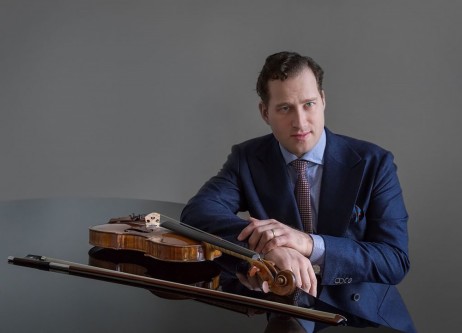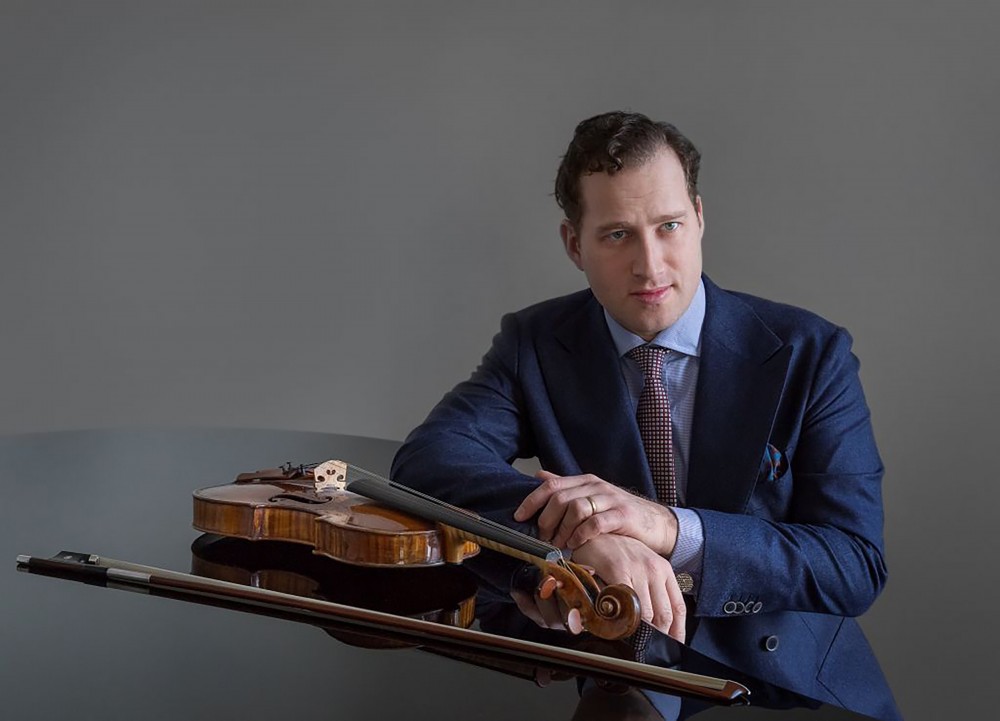 United Kingdom Smetana, Má vlast: London Symphony Orchestra / Nikolaj Szeps-Znaider (conductor). Barbican Hall, London 14.10.2018. (CC)
United Kingdom Smetana, Má vlast: London Symphony Orchestra / Nikolaj Szeps-Znaider (conductor). Barbican Hall, London 14.10.2018. (CC)

Smetana’s glorious affirmation of Czech land and legend, Má vlast (1874-79), a sequence of six tone-poems, is one of the great Bohemian masterworks (incidentally, ‘My Homeland’ is probably a better translation than the perhaps more often encountered ‘My Country,’ as the former includes a level of sentiment: ‘My Country’ would be ‘Má země’). This performance was presented here as part of the LSO’s ‘Czech Roots’ series.
Microphones were present: the London Symphony Orchestra has already released a fine performance under Sir Colin Davis on the LSO Live label, so one assumes this was archival/ or for broadcast. Moving forwards very slightly, Nikolaj Szeps-Znaider leads the LSO in parts of the piece (coupled with Tchaikovsky First Piano Concerto with Denis Kozhukhin) in Madrid on Tuesday, 16 October.
Szeps-Znaider conducted the piece from memory. He allowed the two harps to begin without his intervention, leading in to a reading whose great strength was its belief in Smetana’s scoring and, indeed, structure. To achieve a balanced string sound, Szeps-Znaider separated the cellos from the double-basses, the cellos next to the first violins, the double-basses situated at the back of the orchestra to the right. From the off, in ‘Vyšehrad’, named after the high rock above the river Vltava’s entry point into Prague – and in whose cemetery Smetana’s body lies – there was the feeling that this had been highly rehearsed; yet there was beauty here, too, not least in the warmth of the LSO strings at the movement close.
The most famous panel is of course ‘Vltava’. Szeps-Znaider’s very fast speed actually worked well because, as the woodwind added themselves to the texture, the sound became both magical and fantastical. The long lines of the silvery violins (water nymphs/sprites in the moonlight) were smooth and evocative; more, for the second movement in a row, he avoided any trace of bombast at climaxes.
It is drama that informs ‘Šárka’. This is a tale of the legendary female warrior who declares war on – and summarily slaughters – men (shades of Boudica and Joan of Arc, albeit in this instance for reasons of revenge on infidelity). It was brilliantly done. The Šarka of legend is sometimes known as ‘divoká Šárka’ (‘wild Šárka’): properly furioso at the outset, here dynamism rubbed shoulders with discipline (the tight ensemble of the staccato chords) until we reached a drunken polka, exhilarating as can be. The contrast to this was the highly atmospheric opening to ‘Z Českých Luhů a Hájů’ (‘From Bohemia’s Woods and Fields’), the beginning of the second part of the cycle. Much delight was to be gleaned from the LSO’s light textures and sprung rhythms, not to mention the piping woodwind.
It is the final two panels of the cycle (which almost meld together as one, ‘Blaník’ following on without a break after ‘Tábor’) that brings us back to, and expand upon, the grandeur of ‘Vyšehrad’: a Hussite chorale, ‘Ktož jsú boží bojovníci’ – ‘Those who are Warriors of God’ – unites the two movements. Szeps-Znaider brought pageantry aplenty to ‘Tábor’ (a South Bohemian town that was the centre of the Hussite rebellion in the 14th century seeking Bohemian independence) before the imposing ideas of ‘Blaník’ took over. The title for this last tone-poem refers to the White Mountain where, after their defeat, the Hussite warriors lie sleeping until the Czech nation needs them again. There were some fine horn solos here from Diego Incertis and most appealing shepherd’s piping from Principal Oboe Juliana Koch.
With a 7pm start and no other work, this was an early to bed evening. But Má vlast deserves star billing. If the LSO and Szeps-Znaider lacked the final atunement with the Czech spirit that we can find on disc with, say, Jiří Bělohlávek’s late, 2014, recording with the Czech Philharmonic (review), it was nevertheless a performance of some distinction.
Colin Clarke
